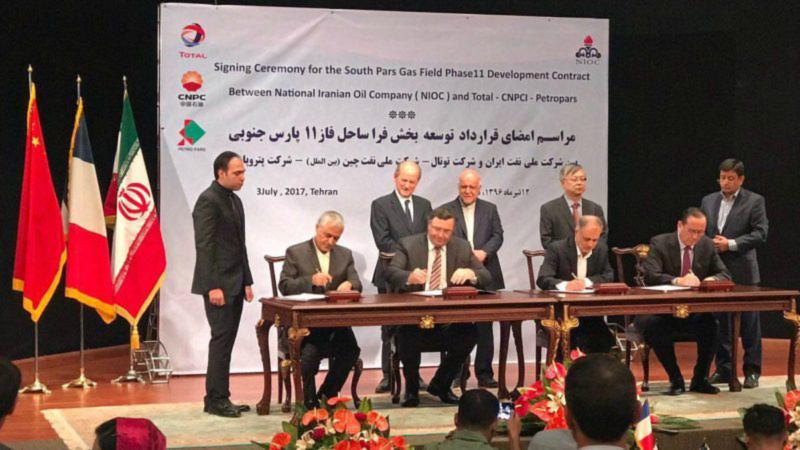French energy giant Total defied US pressure by signing a multi-billion-dollar gas deal with Iran, the first by a European firm in more than a decade.
Total will invest an initial $1 billion (880 million euros) in the South Pars offshore gas field as part of a consortium with Chinese and Iranian firms.
The 20-year project, which will eventually see the firms inject $4.9 billion, is by far the biggest vote of confidence in the Islamic republic since sanctions were lifted under a 2015 nuclear deal with world powers.
“Today, for Total, is a historic day, the day we come back to Iran,” Total CEO Patrick Pouyanne said at the signing ceremony in Tehran.
“We aren’t a political organisation, but I hope this agreement will encourage other companies to come to Iran because economic development is also a way of building peace,” he told to the International news agencies. “We are here to build bridges, not walls,” he added.
The project in South Pars, a field shared between Iran and Qatar, is the first under a new Iranian Petroleum Contract which offers better terms to foreign investors but has faced intense criticism from hardliners who said it was too generous. Oil Minister Bijan Namadar Zanganeh said the deal was a direct result of moderate President Hassan Rouhani’s resounding re-election victory in May and strong public support for rebuilding ties with the West.
“The people said firmly that our oil policies should continue,” he said. “We shall never forget Total being the forerunner.”
Zanganeh said Iran’s oil industry needs some $200 billion in investment over the next five years, and European firms have been hungrily eyeing opportunities in a country with the world’s second-largest gas reserves and fourth-largest oil reserves.
But they have been cautious about investing due to continuing US sanctions. Total has appointed a compliance officer with the sole task of ensuring it does not fall foul of US measures against Iran.
In particular, it must prevent cash flowing to Iran’s elite Revolutionary Guards — a tall order given their extensive and shadowy presence across the Iranian economy.







